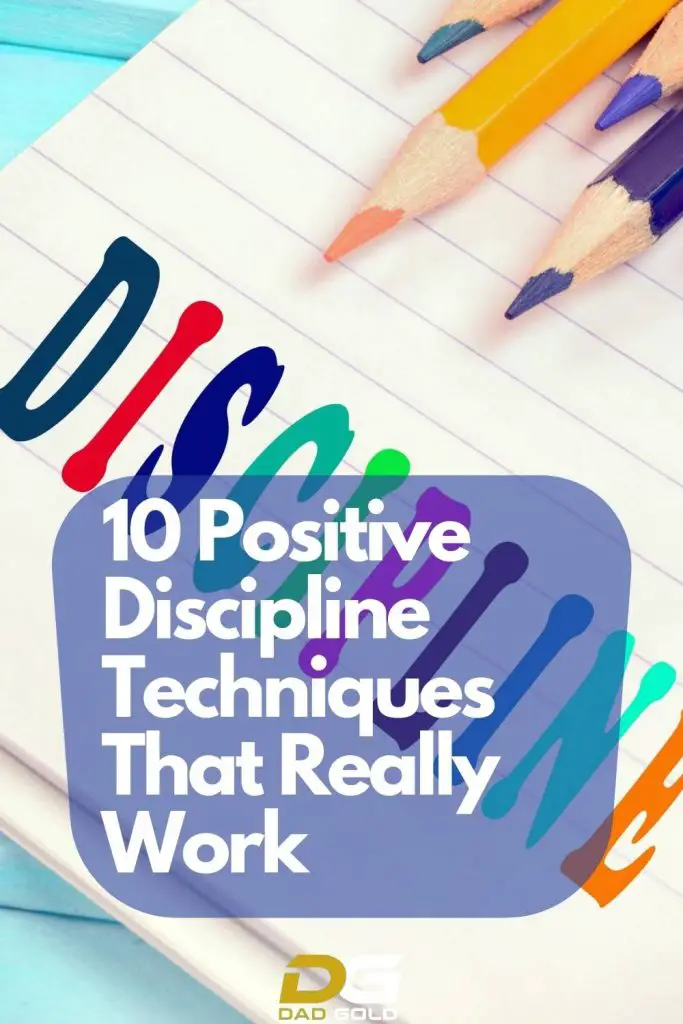Nobody likes to discipline their child.
You are challenging them in ways that can make you feel as if you are getting nowhere fast.
The good news is there are some positive discipline techniques out there to help you work with your children.
The very preventable ‘same result’ can change for the better when the focus shifts to motivate children and give them a sense of belonging.
This is Positive Parenting 101!

What Is Positive Discipline?
Positive discipline aims to encourage and problem-solve using positive methods. These do not involve shouting, hitting, or severe punishment.
The focus is on clear and concise communication with your children. This approach prompts healthy behaviors and the rewards that go with them, as well as learning the consequences of bad behavior.
Punishing or disciplining your children more traditionally can lead to guilt and exhaustion.
That feeling of being on a hamster wheel and going nowhere fast.
-

Bold Male Pride – Baseball Trucker Cap Celebrating Masculinity
£18.00 Select options This product has multiple variants. The options may be chosen on the product page -

Dad Bod Appreciation Gift Mug
£14.00 Add to cart -

Dad Bod, Bad Jokes Structured Baseball Cap
£22.00 Select options This product has multiple variants. The options may be chosen on the product page
There are feelings of disconnection and sadness from both parties. You are introducing a more firm but fair way to deal with problems with a more positive approach.
10 Positive Discipline Techniques That Work
Boundaries
One of the main ways to promote a positive discipline technique is for you to know what the boundaries are. More importantly, for your children to know.
Who is going to teach them? That’s right! Establishing what is acceptable and what is unacceptable will help your children know where they stand.
Don’t mistake setting boundaries for being strict. It isn’t about regimented rules and stripping the house of fun and laughter.
Boundaries are also a two-way thing. This means your child will respect you for those times you knock before you enter their room. Give them space to learn, know, and communicate that you are there if they need help.
Don’t Be Their Friend.
For the sake of them being able to pick their own friends and detach themselves from you to explore peers, your children are not your friends. The role of a parent is more functional.
Blurred lines can distort otherwise healthy parent/child relationships. Your child needs to gain the confidence to have a non-biased group of friends.
One of the mistakes parents can make when they attach themselves to their kids in a ‘friend’ way is forgetting what can happen if a fallout occurs. Imagine you and your child getting into a dispute and falling out.
What happens to your relationship? Not only have you fallen out as ‘friends,’ but you have also fallen out as a parent/child.
Avoid.
Cut Off Your Old Traumas
Disciplining those who suffer from childhood traumas is harder than disciplining those who come from more settled backgrounds. It is wise to iron out old traumas within yourself.
If you had a rough time growing up due to absent or abusive parents, that is some deep, locked trauma that you may or may not have sought help for. It is also a common misconception that if we pass on our old wounds to our children, it’s through a lack of love.
With all that love in the world, children learn a lot from how we treat them and what we model to them.
That old saying, ‘You need to love yourself before you can fully love anybody,’ stands here. Confident parents raise confident kids and healing old wounds goes a long way in making a difference in how your children are raised.
Having therapy before you have children or when they are very young can go a long way to prevent your trauma from becoming theirs.
Befriend The Mini Beasts
Have you ever seen kids pulling wings off bugs or stomping on ants? No matter how small the animal, it’s never nice to see someone so young and vulnerable act that way toward life with so little disregard.
Sometimes, parents turn a blind eye, and sometimes, they yell at them to stop. Yelling isn’t effective in getting them to understand why it’s wrong.
Spend some time in the yard or park searching for mini beasts. Let them ask questions about what their jobs are in life and how they contribute to our environment.
Learn how they can help us and show how fun it is to watch them and spot them when you are out in the future.
Learning respect for even the smallest of creatures goes a long way in building empathic tools in our children.
So, explore nature and find the mini beasts!
Validate, Don’t Punish
I always think of CRAB when I talk about validating your children’s feelings:
- Communication (listening without judgment if they come to you)
- Reflection (talking about how it feels to be sad)
- Acknowledgment (don’t minimize their problems)
- Being sensitive (if it’s important to them, it’s important)
If you nail CRAB, you’ve nailed validation.
Instead of validating, parents who punish children lead children to feel guilt, shame, and additional behavior problems. Their feelings and emotions don’t matter, and their self-esteem vanishes. This will get worse over time and weaken emotional health.
Give Them Your Time
I don’t know what you have heard about children, but the one thing they crave more than anything is your time.
Whether it is a little chat or playing with their toys, entering their world and being present weighs far more than presents. Spending more time with your child is crucial in developing positive discipline interventions.
Your time is like an investment. You will raise more confident, less stressed, and much more settled children. This will soothe their healthy drive for that attention.
By offering your time to them, you can share so much more together. As you look at the world through their eyes, the excitement and those feelings of magical moments deepen your bond. It will transform not only your relationship with them but with yourself, too.
Tell Them ‘Why’
Time to put ‘Because I said so’ in the bin. If you are giving your child an instruction and want to know why you don’t fob them off, it can only create frustration.
Offering explanations is a great way for children to learn about how the world works. If you need them to tidy the table, let them know it’s because it is nice to get everyone at the table for dinner.‘Why’ also comes in handy if or when they behave inappropriately. ‘Don’t do that.’ isn’t giving them anything. If you feel it is wrong, tell them why.
Can it hurt someone? Would something likely break?
Offer them the information they need to realize that it’s better they didn’t do that thing in the first place.
Time Out In
Time out has become a popular way to get children to sit, be calm, and wait out their anger or negative behavior. Usually, until either a certain time has passed or until mom or dad deems it long enough.
How does it go for you? Do you fight them to stay in that spot? Do they scream and scream?
Time out might make you feel better to have a moment alone, but it isn’t the most effective way to discipline your child. There are some better alternatives to time out for discipline.
If things get ratty, reach for them. Have a gentle chat, read a book, or do something quiet. Let them know that their behavior was not acceptable, and then work with them.
Time outs can make a child feel rejected or frustrated. Whilst it might work at that moment, in the long run, you aren’t giving your child the empathy or calm time they actually need.
Let Nature Be The Consequence
You are standing at the front door to head to the post box down the road, and it is raining hard. But you need this letter to make the post today.
Your child refuses to put her boots on point-blank. You are losing your mind, and the shouting between you both is almost at full pitch. Does it need to be that way? Also, do you need to do their homework for them?
Letting nature be the consequence is sometimes a swift lesson learned. If she wants her sandals on, let her, even if you have told her how wet her feet would get.
She will quickly learn that you were right by her own admission.
If they cannot find it within them to do their homework or are too busy playing games to finish it, let them go to school and explain why.
Reinforce Positively
When your child behaves negatively more than positively, it is important to zone in on those good times – positive discipline in a nutshell.
Focusing on appropriate behavior and praising that or letting them know how much we appreciate it could make a huge difference. You are shifting your focus onto the things your child is doing right instead of wrong. This is called positive reinforcement.
It won’t take very long to see a difference here. Keep the focus on the little things they do that might be kind or thoughtful or involved in doing something for another.
If you pick them up on those things, they will see the correlation between doing good and feeling good.
How To Use Positive Discipline
If you have gone down the traditional discipline route, it’s an overhaul to change tactics to a positive discipline technique.
It involves a brand new set of thoughts and beliefs and putting them into practice.
The aim of using positive discipline techniques is to build a positive and strong relationship with your child. It focuses on teaching and problem solving, and in the long term, is a very effective way to discipline children.
Start by listening more than you talk. If your child has that time to express themselves with you listening and taking it all in, they are far more likely to cooperate in the long term.
Children absorb far more than you will ever know, so modeling the behavior we hope to see in them is important.
To get you started this best-selling, highly-rated book is a fantastic place to get you started.
Conclusion
The keyword to remember is positive. You should make ‘positive disciplining’ your new hobby!
Manage your thoughts and authority as a parent to resemble this, and you will notice a stark difference in your house.
When considering discipline, you should opt for positive discipline to develop good behavior.
This really is positive parenting at its very best! Make sure to use these techniques to make bed behavior a thing of the past!
Good luck.







